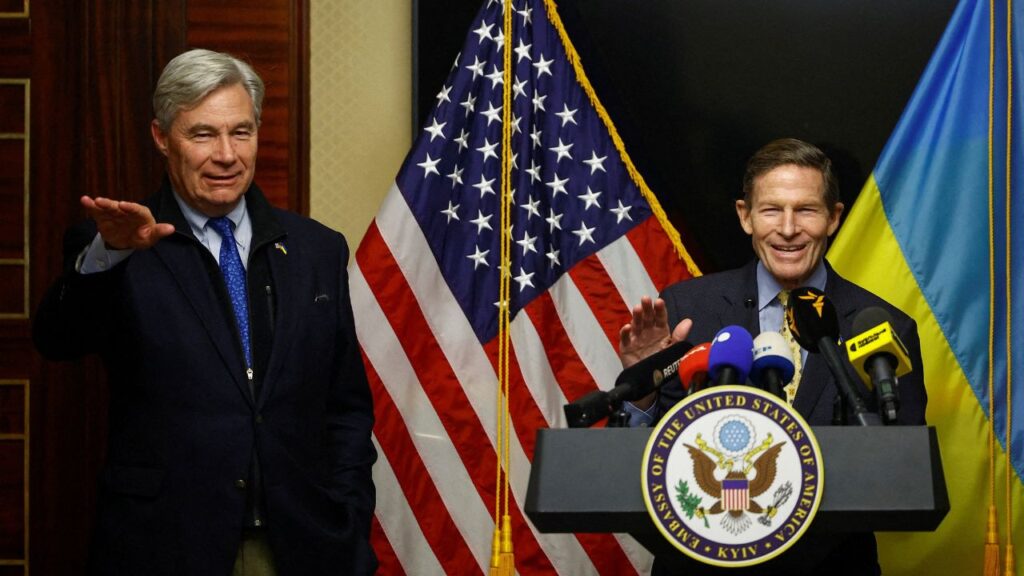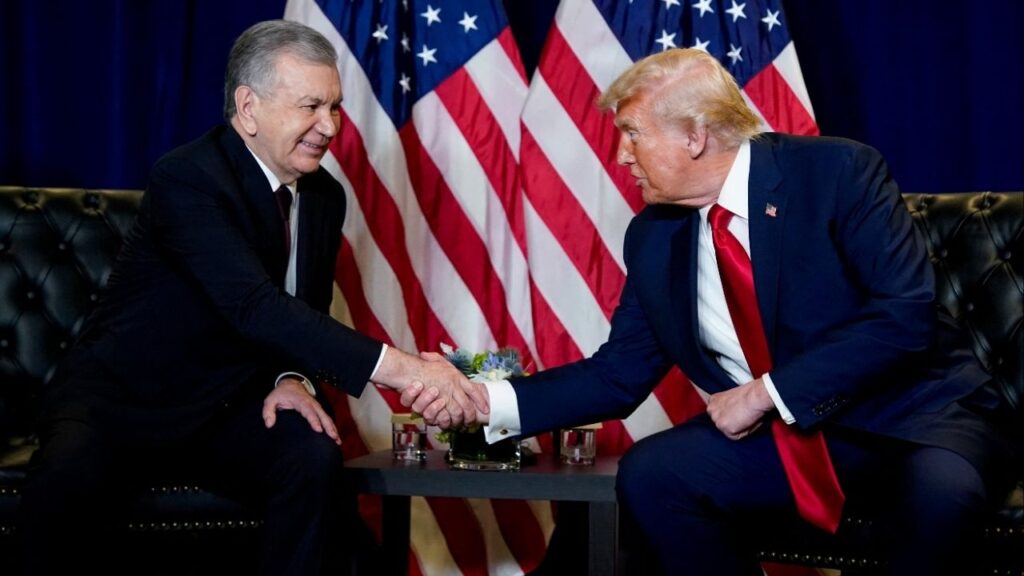Share
Oscar Sandoval believes the traditionally conservative northwest Fresno voters will accept his progressive ideas.
“We are about community, people power,” Sandoval said in describing his campaign for the area’s District 2 seat on the city council.

David Taub
Politics 101
Despite a nearly even registration of Republicans and Democrats (36%-35%), the district has a recent history of GOP representation in the non-partisan seat. Steve Brandau served for the last six years, and Andreas Borgeas for the four years before that. Both men are known for their conservative political thought.
Knowing that, Sandoval says it’s about the issues.
“If you focus on the issues and you have somewhat of a plan, then you can be a candidate that someone can get behind,” said Sandoval, who identifies as a progressive.
Who does he think is his base of support?
“Democrats, progressives, any independent that is really concerned about the future of our district and the future of our city as a whole,” Sandoval said.
Sandoval on the Issues
“If we are not looking out for them, we are doing ourselves a disinterest. It’s the Central Valley. Agriculture drives this place. A lot of that labor is undocumented. We have to be realistic about everyone’s circumstances,” Sandoval said.
“If they get in legal jeopardy, and depending on the situation, it’s something worth looking into.”
Sandoval also supported a recent move to place code enforcement under the control of the city attorney, who answers to the city council.
“Who better knows their district than the city council members that represents them?” Sandoval said.
He is open to exploring rent control in Fresno.
Even with his non-traditional views for the district, Sandoval is using a traditional method to get his views out there.
“I’m going to knock on as many doors as I can, and talk to as many people as I can, and go from there,” Sandoval said. “I’ve been as real as I can with people.”
Sandoval is one of five active candidates for the vacant city council seat in an Aug. 13 special election.
Timeline on Dyer Moving to Fresno
People have been asking Politics 101 about the timeline of when Jerry Dyer moved his residency to Fresno, based on his filing paperwork to run for mayor.
He filed his initial forms filed May 31, around the same time the media reported his move from the county to the city.
Candidates for mayor must show residency paperwork to prove they live in Fresno. The requirement was added this year to a corresponding act already in place for council (who also must show they live in the district).
Dyer’s paperwork filed thus far for his 2020 mayoral run show a postal store address. He’s not the only one. Andrew Janz and Elliott Balch use similar locations for their campaign paperwork.
And that OK, according to the residency act.
The act says a resident needs to live in the city 30 days prior to filing nomination papers. Thus far, the candidates only filed candidate intention and committee organization statements.
For 2020, the deadline for nomination is Dec. 6, meaning the latest a candidate can move into the city is Nov. 6.
Only Luis Chavez and Richard Renteria used their home addresses on campaign filings.
Congressional Fundraising
The latest quarterly federal election campaign fundraising numbers were released this week. Incumbents, as expected, continue to do well.
| District | Candidate | Raised total | Cash on hand |
| 16 | Jim Costa* (D) | $445,906 | $401,328 |
| 16 | Kim Williams (D) | $7,460 | $3,918 |
| 16 | Kevin Cookingham (R) | $0 | $0 |
| 16 | Esmeralda Soria (D) | $0 | $0 |
* Incumbent
According to California Target Book, Costa raised $339,771 in the second quarter.
Soria, the Fresno councilwoman, announced her entry into the race last week. She has six figures left over from her city council campaign.
| District | Candidate | Raised total | Cash on hand |
| 21 | TJ Cox* (D) | $708,501 | $483,837 |
| 21 | David Valadao (R) | $9,912 | $63,863 |
* Incumbent
Valadao hasn’t officially announced he is running, although he said he is thinking about it. More than half his funds this cycle were transfers from other accounts, mainly from the Protect the House PAC and some of its individual contributors.
Cox said he raised $402,000 from 2,000 contributors in the second quarter.
“Every day I’m humbled by the tireless support for our campaign and I know I must work day and night to give the working families of the Central Valley the representation they deserve,” Cox said.
| District | Candidate | Raised total | Cash on hand |
| 22 | Devin Nunes* (R) | $3,075,434 | $5,655,570 |
| 22 | Phil Arballo (D) | $130,197 | $124,315 |
| 22 | Bobby Bliatout (D) | $11,781 | $11,314 |
| 22 | Dary Rezvani | $9,554 | $7,290 |
* Incumbent
Devin Nunes has raised a lot and spent a lot — $1.7 million. Three of the top four largest itemized expenses went to Oxford Communications, a total of $160,000 for “solicitation: printing and mailhouse – list rental.”
Fresno financial advisor Phil Arballo has a substantial fundraising advantage over two other Fresno businessmen who hope to topple Nunes — Bobby Bliatout and Dary Rezvani.
Arballo said he raised the money in June alone from 4,500 individual contributors.
“I’m humbled by the outpouring of support our grassroots campaign has received from individual contributors,” Arballo said. “Unlike Congressman Nunes, who’s doing the bidding of high-powered lobbyists and special interests in Washington, D.C., I refuse to take a dollar of corporate PAC money,” Arballo said.
Obscure Government Meeting of the Week
Earlier this month, I wrote about health care premiums rising for State Center Community College District employees.
SCCCD is one of three school districts that participate in a self-funded health care system called EdCare. It is governed by a board consisting of representatives from the three entities.
The group held its monthly meeting Tuesday in an office building at the Fig Garden Financial Center. Because EdCare consists of governmental institutions, the meetings are open to the public. I sat in for a portion of the meeting.

Not that there wasn’t a nugget of information from the meeting. The $4 million EdCare received from its member groups to help cover a shortfall was supposed to be paid back in three years.
An idea floated at the meeting is to expand the payback period from three to six years. That means the monthly amount per health care user falls from $62 to $31. It also means they have to pay that amount three years longer than originally planned.
No vote was taken on the extended payment plan, but one is expected in the next few months.
Categories

US Senators in Ukraine Call for Pressure on Russia, Not Just Talks

US and Uzbekistan Sign Critical Minerals Pact
















